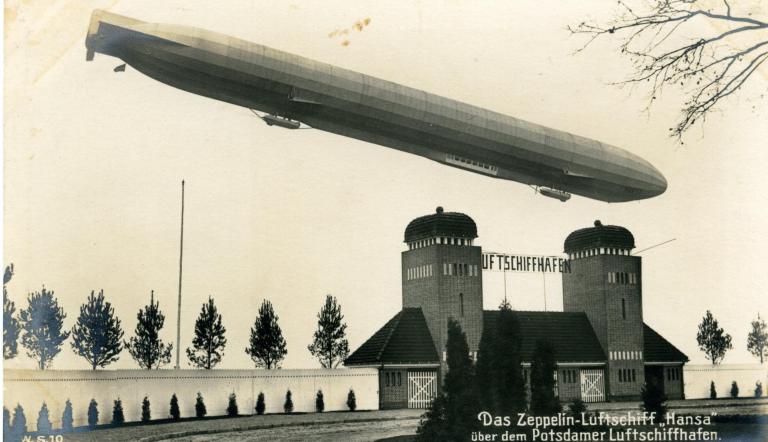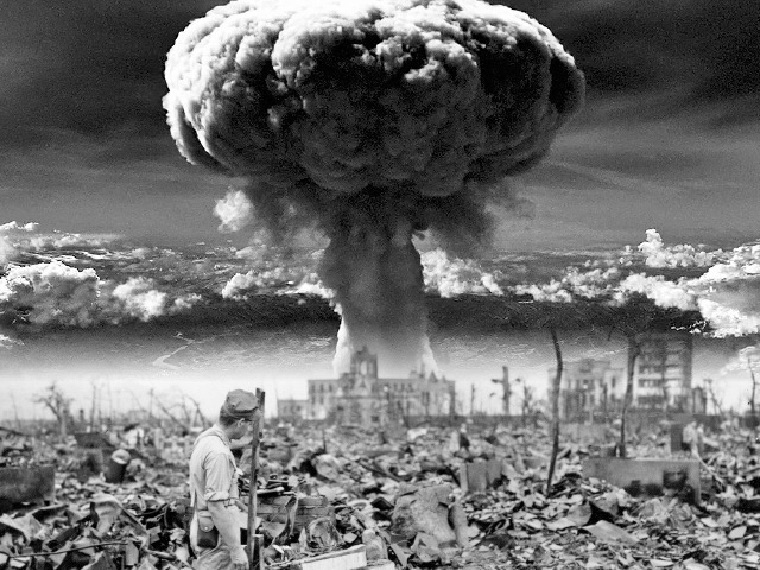By
William S. Lind*

As regular readers know, every year I telephone my reporting senior, Kaiser Wilhelm II, on his birthday, January 27, to offer my best wishes. Such readers also know that His Majesty likes to surprise me. Well, he did. When I got out of bed the morning of the 23rd, I found out why: a naval Zeppelin, L-70, was hovering about twenty feet above my chimney. Luckily, there were no sparks.
I knew that meant I was on my way to Berlin. I grabbed my seabag and went outside, where the airship had lowered its observation car for me to board. I was quickly on my way, enjoying every minute of the smooth and silent air travel only an airship, not an airplane, can offer.
We landed at the Potsdam Zeppelinhafen the morning of the 26th, where a Fahnenjunker Kleinschmidt was waiting for me with an extra horse. “They’re at the toy fort,” he told me as we cantered off. “They?” I inquired. Grinning, the Herr Fahnenjunker said, “you are about to meet some old friends.”
The toy fort is on the grounds of the Neues Palais, His Majesty’s preferred residence. “Toy” is something of a misnomer. It was a place for young Hohenzollern princes to play, but it was extensive and realistic enough so experiments with new battlefield tactics and techniques were carried out there. As I rode up it was clear something along those lines was being conducted.
Dismounting, I saluted His Majesty, offering my felicitations for the morrow, and lit up in delight as I surveyed the rest of the party. Bismarck was there, to whom I bowed very deeply, along with Moltke and, from a later time than ours, Field Marshal von Manstein. And two old friends indeed, General Max Hoffman [a key German commander in World War I] and Hermann Balck [famed World War II Panzer commander]. I hadn’t seen Balck since we had dinner in the 1970s, and Max I knew only in spirit, but I also knew that with them present we would rock and roll.
“So, does this stranger have the password?” His Majesty inquired, grinning. “Gott strafe England,” I replied. “That always works,” Max said. “And with you here, so does ‘Wurst und Moselwein’, nicht wahr?” I threw back. “Immer,” said His Majesty. “But we also have some serious business to transact. The problem before us is, how Ukraine can win its war with Russia. Field Marshal von Manstein was about to present his analytics.”
I again saluted the Field Marshal, who began with the failure of the Ukrainian summer counter-offensive. “In effect, the Ukrainian operation plan was Barbarossa writ small. It had no Schwerpunkt. The Ukrainians launched three simultaneous, non-mutually-supporting thrusts. They led with armor, which, as we learned the hard way, always costs heavily in destroyed tanks. By the way, their tanks, including the German Leopards, proved no more survivable than their Russian equivalents. They then tried to lead with infantry, which, with infiltration tactics, could have worked, but it did not. I’m not sure why.”
“I suspect their heavy losses in infantry left them without the high-quality troops attack divisions require,” His Majesty observed. “It is difficult to do infiltration tactics with Landsturm. But the question is not why their summer offensive failed, but whether we can come up with an operational plan that will work. Any Ideas?”
Max spoke up. “They need to break through at one end of the Russian lines, north or south, then roll up between the Russian front and the Russian border. That will either bag or reduce to a rabble the whole Russian force in the east. Having done that, they should offer to negotiate. Russia has to get something still, certainly Crimea, but Ukraine would keep the Don basin with its industry.”
“They can’t break through,” Balck observed. “They have to do an end run.”
“How?” Moltke asked, as always a man of few words.
Now Manstein showed his stuff. “Ukraine should mass its forces in the north, as if to break through there. Then, it launches into Belarus with the whole force. The Schwerpunkt should drive north, then east, end-running the Russian northern line and driving down between the Russian forces and the border, just as Herr General Hoffman suggests. But that’s not all. Two other thrusts, both small in size, should be detached from the main force. One should drive at Minsk, broadcasting the message that its only target is Lukashenko and asking Belarussian forces to come over. That will pose not just an operational but a strategic threat to Russia just as she needs her operational reserves inside Ukraine. The second Nebenpunkt should be a special operation to sieve the missiles with nuclear warheads Russia has positioned in Belarus. If Ukraine grabs those, Russia loses the ace up her sleeve, the threat to go nuclear. Russia will face one operational and two strategic disasters, without sufficient forces to deal with more than one, and become paralyzed by the choice.”
We stood around somewhat stunned. For a while, no one said anything. Then Bismarck spoke. “Brilliant operational art, Herr Feldmarschall”. You deserve the oak leaves. But what none of you idiots have considered is the strategic picture!”
The Kaiser rolled his eyes. “Now I know why my grandfather said, ‘Sometimes it is a hard thing, being Kaiser under Bismarck.” But please, Otto, enlighten us.”
“Why is Germany allied with Ukraine when Russia is far more important to us? Yes, we need the grain of Ukraine. But Russia offers vastly more: grain, oil and gas, strategic position, a large if low quality army, a decent navy and air force, the list is endless,” Bismarck went on. “I have no love for the “Laws of History,” but there does seem to be a general rule that when Germany and Russia are allied, both do well, and when they are opposed, both do badly. Is there really any need to discuss what the outcomes of the World Wars would have been if Russia had joined the Central Powers in a new Dreikaiserbund or the Axis? Max? Moltke? Anybody?
“There would have been no Second World War, or probably First, in that case,” the Kaiser said. “Peace is what I wanted, and peace is what Germany and Europe would have had. Anyway, it has grown late, and we face a big party tomorrow in the Grotto – both Nicky and my friend Franz Ferdinand are coming, as are you, my American friend – and I promised Max more sausages and Mosel wine than even he can eat and drink. Between now and then, we all have things to ponder, especially what you, dear Otto, have told us. We Germans always want to subordinate the strategic to the operational, then wonder why it all blows up in our face. Hopefully, someday we will learn not to do that. May that day come soon.”
* William S. Lind is the author, among many other works on military history and strategy, of the The New Maneuver Warfare Handbook (just published). This article has been published earlier in Traditional Right.

